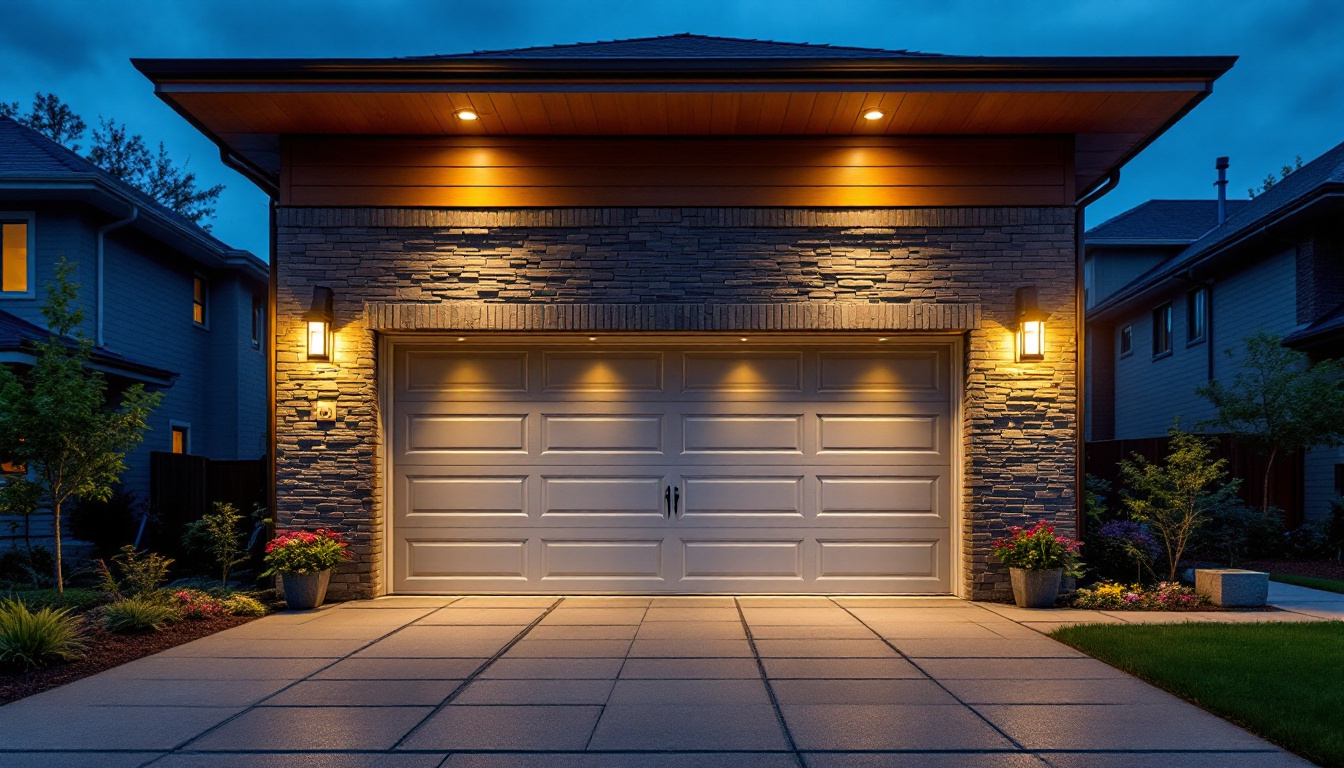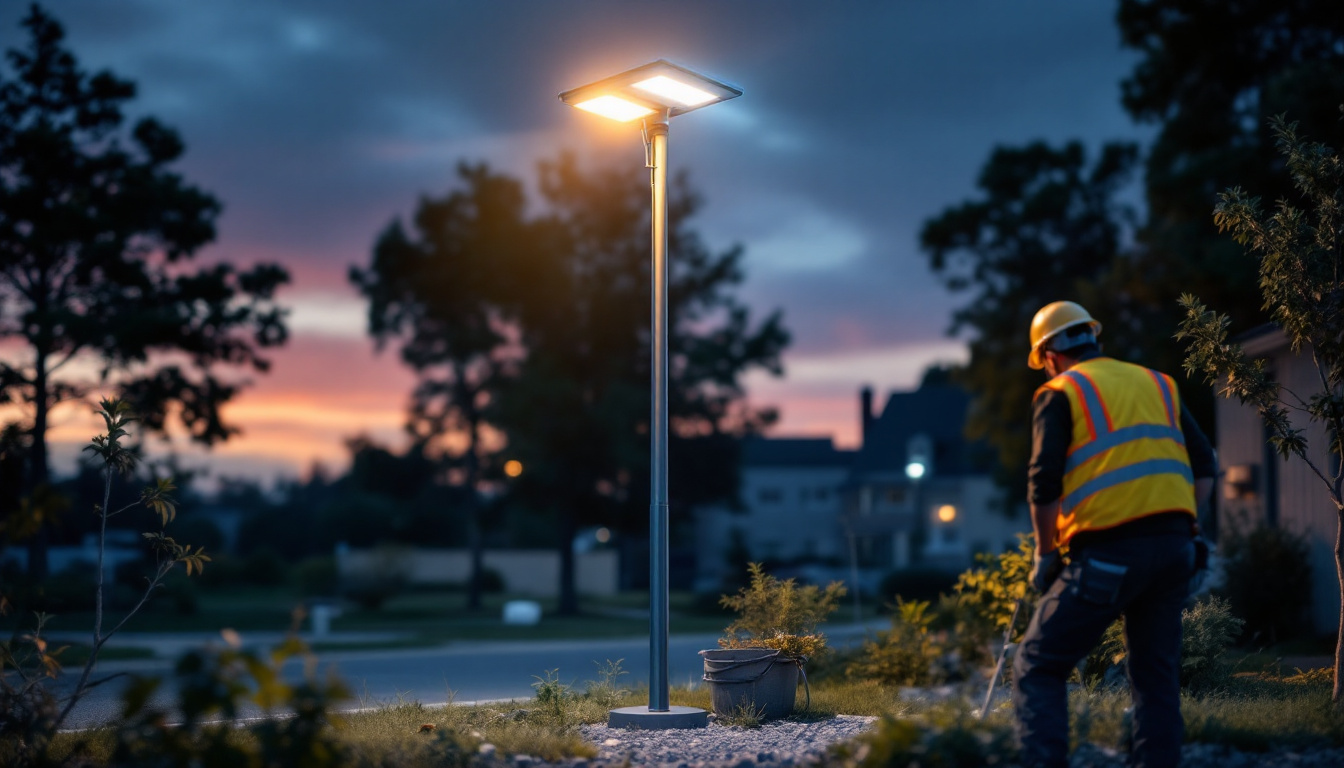

In recent years, outdoor solar lights have gained immense popularity among homeowners and businesses alike. Their ability to provide illumination without the need for extensive wiring or electrical connections makes them an attractive option. However, as a lighting contractor, understanding the nuances of solar lighting systems is crucial to ensuring customer satisfaction and project success. This guide aims to highlight common pitfalls encountered in solar lighting projects and provide practical advice to navigate these challenges.
Before diving into the pitfalls, it is essential to have a solid grasp of the technology behind outdoor solar lights. Solar lights operate by converting sunlight into electricity through photovoltaic cells. This energy is stored in batteries, which power the lights after sunset. The efficiency of this process can vary significantly based on several factors, including geographic location, seasonal changes, and the angle of sunlight exposure. For instance, areas with prolonged cloudy weather may see diminished performance from solar lights, making it crucial to assess local climate conditions when planning installations.
Solar lights typically consist of several key components: the solar panel, battery, LED light source, and a control circuit. Each of these parts plays a vital role in the overall performance of the lighting system. The solar panel captures sunlight and converts it into electrical energy, while the battery stores this energy for nighttime use. The LED light source is known for its energy efficiency and longevity, often lasting thousands of hours. The control circuit manages the flow of electricity, ensuring that the lights turn on and off at appropriate times. Understanding how they interact can help contractors make informed decisions when selecting products for their projects. Additionally, some advanced solar lights come equipped with smart technology that allows for remote control and scheduling, providing even greater flexibility and efficiency in outdoor lighting design.
The efficiency of solar lights is influenced by various factors, including the quality of the solar panel, battery capacity, and the type of LED used. Higher-quality components generally lead to better performance, but they also come at a higher cost. For example, monocrystalline solar panels are typically more efficient than their polycrystalline counterparts, making them a preferred choice for installations where space is limited. Battery technology also plays a crucial role; lithium-ion batteries, while more expensive, offer longer life cycles and better performance in varying temperatures compared to traditional lead-acid batteries. It is essential to strike a balance between quality and budget to meet client expectations. Furthermore, regular maintenance, such as cleaning the solar panels and checking battery health, can significantly enhance the longevity and efficiency of solar lighting systems.
There are several misconceptions surrounding solar lights that can lead to poor decision-making. For instance, some believe that all solar lights are created equal, which is far from the truth. Variations in quality, design, and intended use can significantly impact the effectiveness of solar lighting solutions. For example, decorative solar lights designed for aesthetic appeal may not provide the same brightness or longevity as those intended for security or functional lighting. Educating clients about these differences can help set realistic expectations. Additionally, some users may underestimate the importance of proper installation and positioning; solar lights should be placed in areas that receive ample sunlight throughout the day to maximize their efficiency. Understanding these nuances can empower clients to make better choices that align with their specific needs and environmental conditions.
The placement of solar lights is critical to their performance. Improper positioning can lead to inadequate charging and diminished light output. As a contractor, understanding the nuances of site selection can prevent many common issues.
One of the most significant factors affecting solar light performance is sunlight exposure. Ideally, solar panels should be placed in areas that receive direct sunlight for a substantial part of the day. Shaded locations, such as those under trees or near tall buildings, can drastically reduce the efficiency of the solar panels, leading to dim or non-functional lights.
The height and angle at which solar lights are installed can also influence their effectiveness. Lights should be mounted at a height that allows them to illuminate the intended area while also ensuring the solar panel receives maximum sunlight. A tilt of around 30 degrees can enhance solar absorption, especially in regions with lower sun angles.
When selecting locations for solar lights, it is crucial to consider accessibility for maintenance. While solar lights generally require less upkeep than traditional lighting systems, they still need occasional cleaning and battery replacement. Ensuring that lights are easily accessible can save time and effort in the long run.
The battery is a vital component of solar lighting systems, as it stores the energy collected during the day for use at night. Selecting the right battery type and ensuring proper maintenance can significantly enhance the longevity and performance of solar lights.
There are various types of batteries used in solar lights, including lead-acid, nickel-cadmium (NiCd), and lithium-ion. Each type has its advantages and disadvantages. Lead-acid batteries are cost-effective but have a shorter lifespan. NiCd batteries are more durable but can suffer from memory effect. Lithium-ion batteries, while more expensive, offer the best performance and longevity. Understanding these differences can help contractors make informed choices based on project requirements.
Regular maintenance of batteries is essential to ensure optimal performance. This includes checking for corrosion, ensuring proper connections, and replacing batteries when necessary. Educating clients about the importance of battery maintenance can help prolong the life of their solar lighting systems.
Being able to identify signs of battery failure can save time and resources. Common indicators include dimming lights, flickering, or lights that do not turn on at all. Promptly addressing these issues can prevent further damage and ensure that clients remain satisfied with their solar lighting solutions.
The market for solar light fixtures is vast, and selecting the right products can be daunting. Understanding the various options available and their intended applications can help contractors make the best choices for their clients.
There are several types of solar lights, including pathway lights, flood lights, spotlights, and decorative lights. Each type serves a different purpose and is designed for specific applications. For instance, pathway lights are ideal for illuminating walkways, while flood lights are better suited for larger areas. Assessing the client’s needs and the intended use of the lights is critical in making the right selection.
While it may be tempting to opt for the cheapest options available, quality should never be compromised. Low-quality solar lights may save money upfront but can lead to higher costs in the long run due to frequent replacements and maintenance issues. Investing in reputable brands and high-quality fixtures can enhance client satisfaction and reduce warranty claims.
The design of solar light fixtures is also an essential consideration. Clients often seek lights that complement their landscape and architecture. Offering a range of styles and finishes can help meet diverse aesthetic preferences and enhance the overall appeal of the outdoor space.
Proper installation is crucial to the performance and longevity of solar lighting systems. Following best practices can help avoid common pitfalls and ensure that clients receive the best possible results.
Each solar light fixture comes with specific installation guidelines provided by the manufacturer. Adhering to these instructions is vital to ensure optimal performance and to maintain warranty coverage. Familiarizing oneself with these guidelines can prevent costly mistakes during installation.
Before completing the installation, it is advisable to test the solar lights to ensure they function correctly. This includes checking the light output, battery charging, and overall performance. Addressing any issues before finalizing the project can enhance client satisfaction and reduce the likelihood of callbacks.
Maintaining thorough documentation of the installation process can be beneficial for future reference. This includes taking photos, noting specific installation details, and keeping records of the products used. Such documentation can assist in troubleshooting and provide valuable information for future projects.
Client education is a vital aspect of any successful lighting project. Providing clear information about solar lighting systems can help set realistic expectations and enhance satisfaction.
While solar lights offer many advantages, they also have limitations. For instance, performance can be affected by weather conditions, seasonal changes, and geographical location. Educating clients about these factors can help them understand the potential variability in performance and manage their expectations accordingly.
Clients should be informed about the best practices for using solar lights. This includes keeping the solar panels clean, avoiding obstructions that block sunlight, and understanding the importance of battery maintenance. Providing this information can empower clients to take care of their solar lighting systems effectively.
After the installation, offering ongoing support can foster positive relationships with clients. This can include follow-up consultations, maintenance services, or simply being available to answer questions. Such support can lead to repeat business and referrals, benefiting the contractor’s reputation and success.
Outdoor solar lights present an excellent opportunity for lighting contractors to expand their offerings and meet the growing demand for sustainable lighting solutions. However, navigating the complexities of solar lighting systems requires knowledge and attention to detail. By understanding the technology, choosing the right products, and following best practices for installation and client education, contractors can avoid common pitfalls and deliver exceptional results.
Ultimately, investing time in understanding solar lighting can lead to increased client satisfaction, repeat business, and a solid reputation in the industry. As the market for solar lighting continues to evolve, staying informed and adaptable will be key to success in this dynamic field.
Ready to elevate your lighting projects with the best solar solutions on the market? Look no further than LumenWholesale, where we specialize in providing contractors with high-quality, spec-grade lighting products at unbeatable wholesale prices. Say goodbye to unnecessary markups and hello to a vast selection of reliable, high-performance lighting that meets the highest industry standards. Plus, with free shipping on bulk orders, you can enjoy premium lighting at the best value — all without hidden fees or compromises. Don’t miss out on the perfect blend of quality, affordability, and convenience. Visit LumenWholesale today for Wholesale Lighting at the Best Value, and light up your projects with confidence.

Discover essential insights and tips for lighting contractors in this comprehensive guide.

Discover expert insights on choosing and installing outside garage door lights with this comprehensive guide from a seasoned lighting contractor.

Discover essential information about solar light poles that every lighting contractor needs to know.

Discover how the 100W LED High Bay Light is revolutionizing the lighting industry for contractors.
Get notified when NEW deals are released.
Optimize your budget with wholesale discounts.
Only top-quality, specification-grade lighting products.
No additional costs at checkout - what you see is what you pay.
We understand the unique needs of contractors.